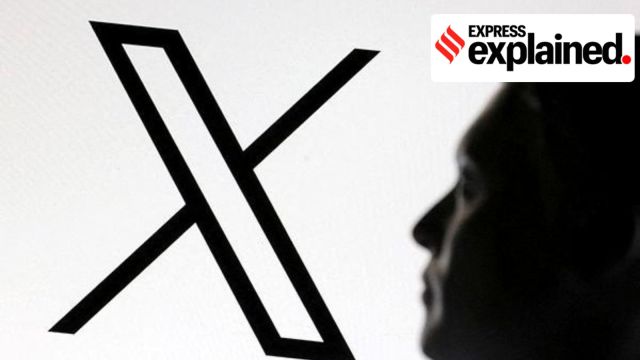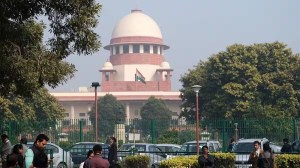What is Sahyog, which Elon Musk-owned X called a ‘censorship portal’?
Fifteen IT intermediaries have come aboard the portal, including Josh, Quora, Telegram, Apple, Google, Amazon, You Tube, PI Data Centre, and Sharechat. Here is what to know
 A 3D-printed miniature model of Elon Musk and the X logo are seen in this illustration taken January 23, 2025. (Reuters)
A 3D-printed miniature model of Elon Musk and the X logo are seen in this illustration taken January 23, 2025. (Reuters)The Centre informed the Karnataka High Court on Thursday (March 28) that Elon Musk-owned X’s description of the government’s Sahyog portal as a “censorship portal” is “unfortunate” and “condemnable”.
In a detailed response submitted to the court, the Centre countered the claims made by X Corp in its petition challenging India’s information-blocking framework. The HC is currently hearing a challenge by X against the government’s use of Section 79(3)(b) of the Information Technology Act, 2000 (IT Act) to moderate and order the removal of content on social media.
What is the ‘Sahyog’ portal?
The Sahyog portal was launched in 2024 by the Union Home Ministry last year to expedite orders to block objectionable content. It is maintained by the Indian Cyber Crime Coordination Centre (I4C).
“Sahyog portal has been launched to expedite the process of sending notices to IT intermediaries by the appropriate government or its agency under Clause (b) of Sub-section (3) of Section 79 of the IT Act, 2000 to facilitate the removal or disabling of access to any information, data or communication link being used to commit an unlawful act,” Union Minister of State for Home Affairs Bandi Sanjay Kumar said in Rajya Sabha on March 26.
“I4C proactively identified and blocked more than 3,962 Skype IDs and 83,668 WhatsApp accounts used for Digital Arrest. Till February 28, more than 7.81 lakhs SIM cards and 2,08,469 IMEIs as reported by police authorities have been blocked by the centre,” the minister said.
A senior officer who spoke to The Indian Express said that the portal brought together the authorised agencies, IT intermediaries, and Internet service providers (ISPs) on a single platform, to ensure prompt, coordinated action towards maintaining a safe cyberspace in India. “Now, notices can be issued directly by the authorised agencies or under court directions, facilitating timely responses to online violations,” the officer said.
Flagging objectionable content
A concerned authorised agency from the centre, state police or law enforcement agency can flag objectionable web content and raise a request to block it on the portal. “After receiving their request, the concerned request will go to the IT intermediaries or ISPs to block the alleged objectionable content. But in case of request for IT intermediaries/social media intermediaries, the notices will directly escalate to those intermediaries. In case of ISPs, the notices will be escalated to the Department of Technologies (DoT) and DoT will further send it to the ISPs,” an officer said.
The officer also said that reports of action taken on IT intermediaries or ISPs will be made visible to all concerned stakeholders through a national dashboard. The IT intermediaries also have the option to seek additional information/evidence from authorised agencies, according to the officer.
In December, the Delhi High Court, in its order for Shabana vs Govt of NCT Delhi, emphasised the operationalisation of the Sahyog Portal to take down unlawful content under Section 79(3)(b) of the IT Act, 2000. The Delhi High Court has also directed IT intermediaries to onboard the Sahyog Portal and provide the status of their onboarding during the next hearing.
Who is on board the Sahyog Portal?
So far, 15 IT intermediaries have come aboard the portal, including Josh, Quora, Telegram, Apple, Google, Amazon, You Tube, PI Data Centre, and Sharechat. 31 States and UTs have notified their officers as per Section 79(3)(b) of IT Act and onboarded the Sahyog Portal.
“Now, Google can block the content from their Play Store app, Firebase domain, YouTube video, Drive link/share, while WhatsApp can block the number (account), channel or group. Facebook and Instagram will block the content, profiles, and advertisement posts, Microsoft will block the email ID, Skype ID, and OneDrive links,” an officer said.
More Explained
Must Read
EXPRESS OPINION
Apr 17: Latest News
- 01
- 02
- 03
- 04
- 05




























